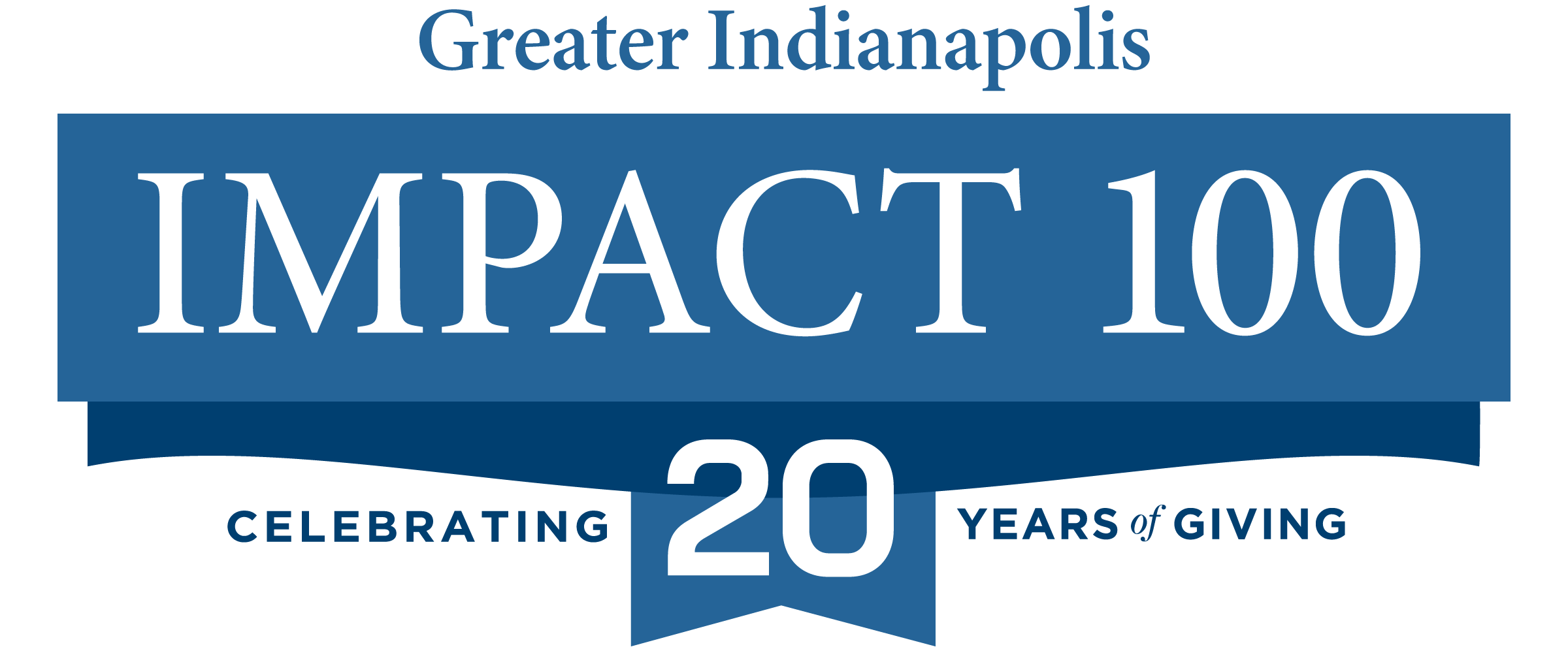Giving Circles Are For the Doers
Donna Oklak, one of the co-founders of Impact 100 Greater Indianapolis, discusses giving circles in Indianapolis in a blog posting on the Lilly School of Philantrhopy website. It is reposted in its entirety here.
‘Giving circles are for the doers’: the creation of Impact 100 and 100 Voices of Hope
By Donna Oklak
“With every deed you are sowing a seed, though the harvest you may not see.”
–Emma Wheeler Wilcox
Two years after starting Impact 100 in Indianapolis, I inadvertently planted a seed with the founder of 100 Voices of Hope, Mary Beth Gadus. Impact 100 and 100 Voices have entirely different missions, yet they share lots of common characteristics, including how to move ideas forward.
Impact 100 began in 2006, and its members make grants of $100,000 each year to local nonprofits through a robust grant committee process. The circle and its members have awarded $2.1 million to more than 50 nonprofits, with 14 of these agencies receiving grants of $100,000 or more.

Likewise, 100 Voices of Hope’s collective giving model (started in 2008) funds scientific research on metastatic breast cancer at the IU Simon Cancer Center and has raised close to $1.6 million. The first clinical trial opened in 2018, based on a research project they supported.
Both giving circles have granted collectively over $3.7 million in our Central Indiana community.
The giving circle movement is well-researched by the Indiana University Lilly Family School of Philanthropy and the Women’s Philanthropy Institute, based in Indianapolis. There are lots of types of giving circles in our city, across the nation and in the world. However, what is harder to pinpoint (even though the energy is palpable) is the transfer of an idea from one founder to another, and the spark a problem solver uses to get energized and make a difference.
In the case of the cross pollination of Impact 100 and 100 Voices of Hope, Mary Beth Gadus was struggling with her own 20-year metastatic breast cancer fight when she first was introduced to the idea of Impact 100. She wondered out loud with her IU doctors how many lives could have been extended had research dollars arrived sooner. She wanted to know how many other scientists with viable “hunches” would never be able to test those ideas for a lack of funding.
In the mid-2000s when Impact 100 and 100 Voices of Hope launched, shows like Shark Tank and the concept of “pitching” for funding was very new. In 2008, I was simply in a room telling other passionate women (including Mary Beth) about Impact 100 and how women working together would accomplish so much more by combining our gifts of $1,000.
Giving Circles are better suited to take on calculated risk when “traditional” foundations and government entities are reluctant or not yet convinced that a promising, but not proven innovative idea should advance.
Impact 100 has supported many new amazing new projects that solve community problems before traditional foundations have gotten on board. Three examples are Rock Steady Boxing’s work with Parkinson’s disease; Volunteers of America of Indiana’s opioid residential recovery program; and a new residential program for LGBTQ youth called Trinity Haven, started by Trinity Episcopal Church and Indiana Youth Group that will open in June 2019. All three received $100,000 Change-Maker grants from Impact 100.
The numerous projects funded by 100 Voices as “hunches” have led to awards of more than $5 million in grant funding to expand and support research at Indiana University School of Medicine. Doctors with 100 Voices’ funding are able to thoroughly explore breast cancer, with a focus on metastatic and Triple Negative breast cancer.
Examples of 100 Voices of Hope funded “hunches” include studying why bone is a common site for metastatic breast cancer; what drug combination therapies work and on which epigenetic targets; and seeking to answer the critical question of why breast cancer presents differently in African American and Caucasian women.
Both Impact 100 and 100 Voices of Hope can take great pride in their accomplishments. Sadly, Mary Beth lost her personal battle with breast cancer in 2016. The Gadus family now carries out their wife and mother’s passion for funding metastatic breast cancer with the Indiana University School of Medicine.
Giving Circles, in whatever form they take—by making $100,000 grants to nonprofits or funding $100,000 cancer research “hunches”—are for the doers. We plant seeds and move ideas forward. We move forward proudly, however we can.
Donna Oklak is co-founder of Impact 100 Greater Indianapolis and a 2004 graduate of the IU Lilly Family School of Philanthropy. Impact 100 is the largest women’s giving circle in Indianapolis and has awarded over $2.1 million since it began in 2006. See more information regarding membership and the high impact grants they have awarded to nonprofits in central Indiana.
100 Voices of Hope, founded by Mary Beth Gadus, raises money to benefit IU School of Medicine’s Simon Cancer Center and Vera Bradley Foundation for Breast Cancer Research. Nearly $1.6 million has been raised since 2008 to fund metastatic breast cancer research projects.



